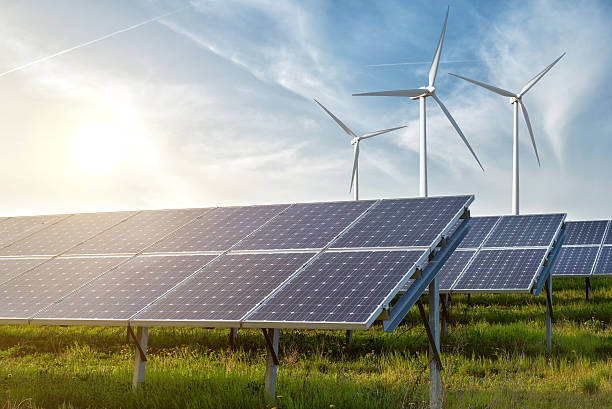Renewable Energy in Nigeria: Powering a Sustainable Future
Nigeria, Africa’s most populous nation, is endowed with vast natural resources. Yet, access to reliable electricity remains one of the country’s biggest challenges. According to recent reports, over 85 million Nigerians still live without electricity, while millions more experience frequent power outages. As the global shift towards clean energy intensifies, renewable energy is emerging as a transformative solution for Nigeria’s power and economic development.
Why Renewable Energy Matters for Nigeria
Nigeria has traditionally depended on fossil fuels, especially crude oil and natural gas, to meet its energy needs. However, this reliance has led to environmental pollution, unstable energy supply, and an overdependence on oil revenue. Renewable energy offers a cleaner, more sustainable path forward by:
Expanding energy access: Solar, wind, hydro, and biomass projects can bring electricity to rural and underserved communities.
Reducing carbon emissions: Transitioning from diesel and petrol generators to clean energy helps combat climate change.
Creating jobs and innovation: The renewable energy sector has the potential to create thousands of skilled jobs in manufacturing, installation, maintenance, and research.
Nigeria’s Renewable Energy Potential
Nigeria is blessed with abundant renewable resources that can be harnessed to power homes, businesses, and industries:
Solar Energy: With an average of 6.5 hours of daily sunshine, Nigeria has one of the highest solar potentials in Africa. Solar mini-grids and rooftop systems are already lighting up communities.
Hydropower: Nigeria has over 278 small and large rivers that could generate significant hydropower, especially in rural areas.
Wind Energy: The coastal and northern regions of Nigeria have favorable wind speeds for electricity generation.
Biomass: Agricultural waste and other organic materials can be converted into bioenergy, reducing dependence on firewood and kerosene.
Challenges Facing Renewable Energy Development
Despite its vast potential, Nigeria’s renewable energy sector faces hurdles such as:
Limited access to financing for renewable energy projects.
Inadequate government incentives and policies to encourage private investment.
Low public awareness about the benefits and reliability of renewable energy.
Infrastructure and technical capacity gaps.
The Role of Green Page Exclusive Energy Resources
At Green Page Exclusive Energy Resources, we are committed to bridging Nigeria’s energy gap through innovative renewable energy solutions. Our focus is on providing sustainable power alternatives that support businesses, communities, and industries. By leveraging advanced technologies and strategic partnerships, we aim to:
Deliver reliable solar and hybrid systems to both urban and rural communities.
Support Nigeria’s transition from fossil fuels to sustainable energy.
Empower businesses with cost-effective and eco-friendly energy solutions.
Contribute to national energy security and climate resilience.
Looking Ahead
Renewable energy is not just a necessity—it is the future of Nigeria’s sustainable development. By investing in clean energy, Nigeria can power its industries, improve quality of life, and build a greener economy for future generations.
At Green Page Exclusive Energy Resources, we believe in driving this transformation forward. Together with government, private sector, and local communities, Nigeria can harness its natural wealth of renewable resources to create a brighter, cleaner, and more prosperous future.



